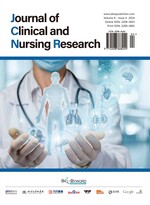Abstract
Objective: To explore the clinical value of surgical treatment and postoperative anti-infection treatment for acute suppurative appendicitis. Methods: A total of 116 patients with acute suppurative appendicitis were enrolled in this study. The collection period was from December 2021 to December 2023. The patients were randomly grouped into a control group (surgical treatment) and an observation group (surgical treatment and postoperative anti-infection treatment), of 58 patients each. At the end of the treatment, the results of each index of the two groups were compared. Results: The length of hospitalization time, exhaust time, and incidence of complications in the observation group were shorter than those of the control group (P < 0.05). The total effective rate of the observation group was higher than that of the control group (P < 0.05). Conclusion: It is crucial to perform anti-infective treatment promptly after surgical treatment in patients with acute suppurative appendicitis. It can effectively prevent the occurrence of complications and improve the clinical efficacy. Hence, it is worthy of research and promotion.
References
Song L, Huang H, Li R, et al., 2023, Pathogenic Bacteria Analysis of Postoperative Incision Infection in Patients with Acute Appendicitis and The Predictive Value of Combined Detection of NLR, PCT, and CRP. Modern Biomedical Progress, 23(17): 3359–3364.
Liu Y, Wang C, Zhou K, et al., 2023, Analysis of Incision Infection and Treatment Effect after Acute Suppurative Appendicitis in Children. Chinese Journal of Pathogenic Biology, 18(3): 323–326 + 331.
Fang J, Chen W, Huang M, 2023, Effect of Transumbilical Single-Port Laparoscopic Appendectomy on Postoperative Intestinal Function in Children with Acute Complex Appendicitis. China Maternal and Child Health Care, 38 (1): 175–178.
Frongia G, Dostal F, Ziebell L, et al., 2022, Delayed Surgery for Perforated Appendicitis is Feasible in Children Without Compromising the Outcome in Selected Cases. World Journal of Surgery: Official Journal of the Societe Internationale de Chirurgie, 46(8): 1980–1986.
Zheng Z, Chen X, Zhou Y, 2022, Efficacy and Prognosis of Laparoscopic Appendectomy at Different Times after Antibiotic Treatment for Suppurative Appendicitis. Hainan Medicine, 33(1): 47–50.
Liang W, Li R, Feng J, et al., 2022, The Efficacy of Modified Karl-Storz Single-Port Laparoscopic Surgery in The Treatment of Acute Appendicitis and Its Effect on Immune Function and Inflammatory Response. Journal of Clinical Surgery, 30(12): 1155–1158.
Huang Z, Tang H, Zhang D, etc., 2023, Study on the Risk Factors, Immune Regulation, and Inflammatory Response of Postoperative Secondary Infection in Children with Intestinal Diseases. Journal of Tropical Medicine, 23(2): 217–221.
Xu J, Wei X, Xue N, et al., 2022, Application of Endoscopic Retrograde Appendicitis in Children with Acute Appendicitis. Chinese Journal of Pediatric Surgery, 43(7): 645–650.
Skertich NJ, Gwyneth AS, Wiegmann AL, et al., 2023, A Shortened Course of Amoxicillin/Clavulanate is The Preferred Antibiotic Treatment after Surgery for Perforated Appendicitis in Children. Journal of Pediatric Surgery, 58(3): 558–563.
